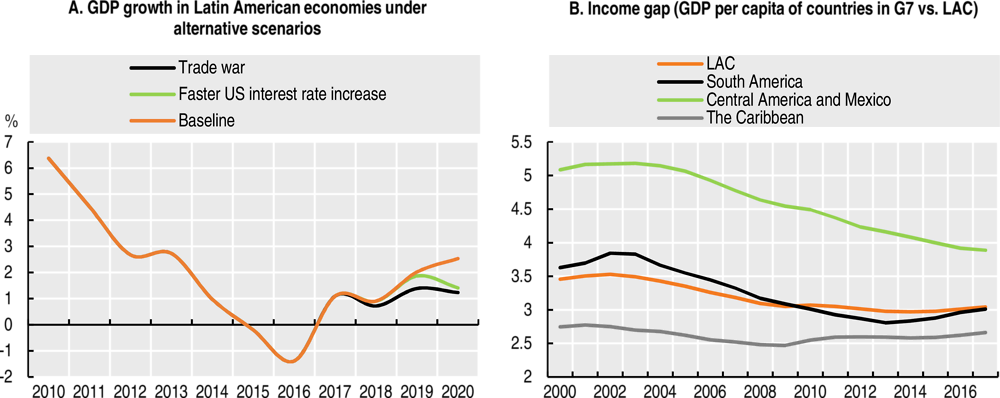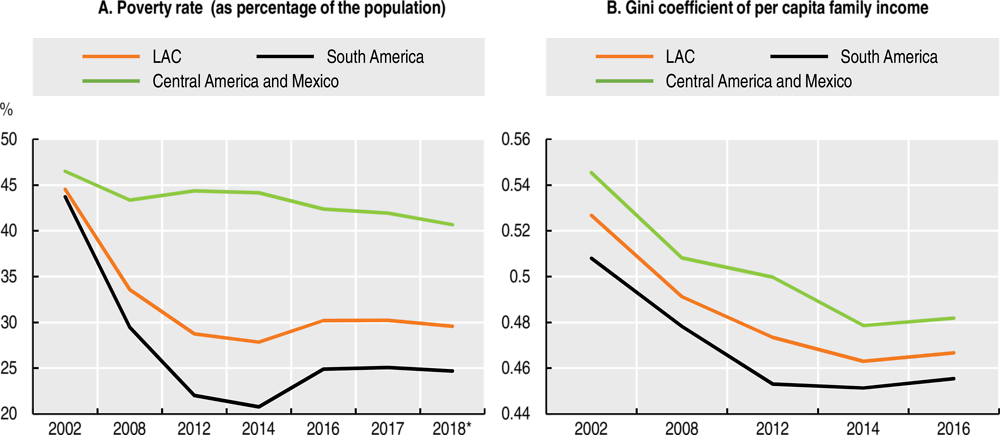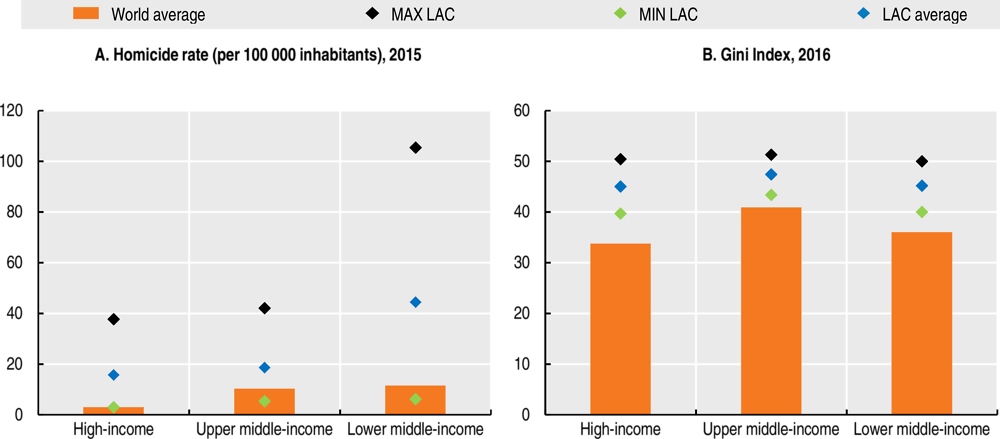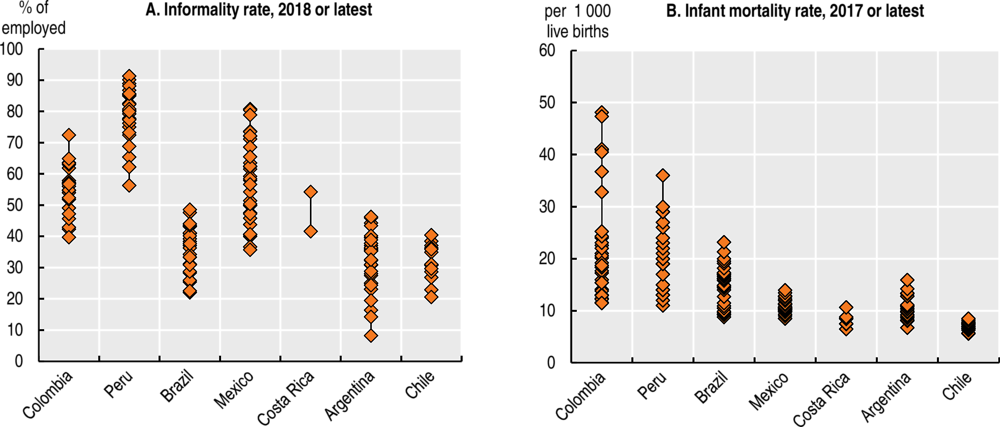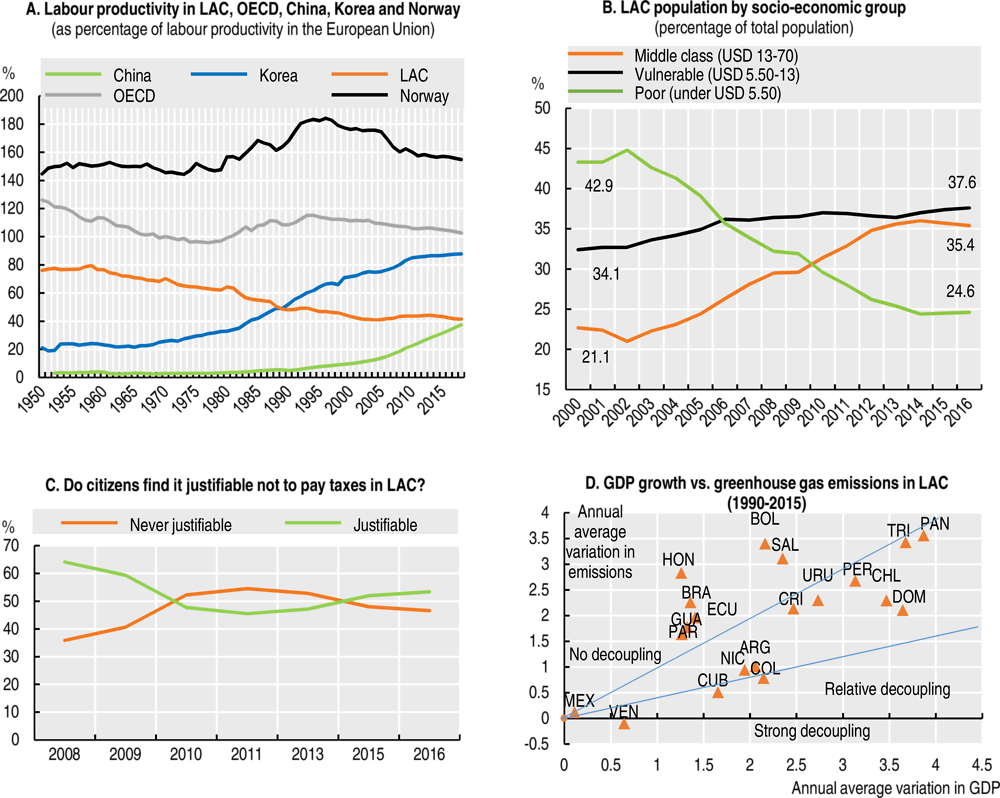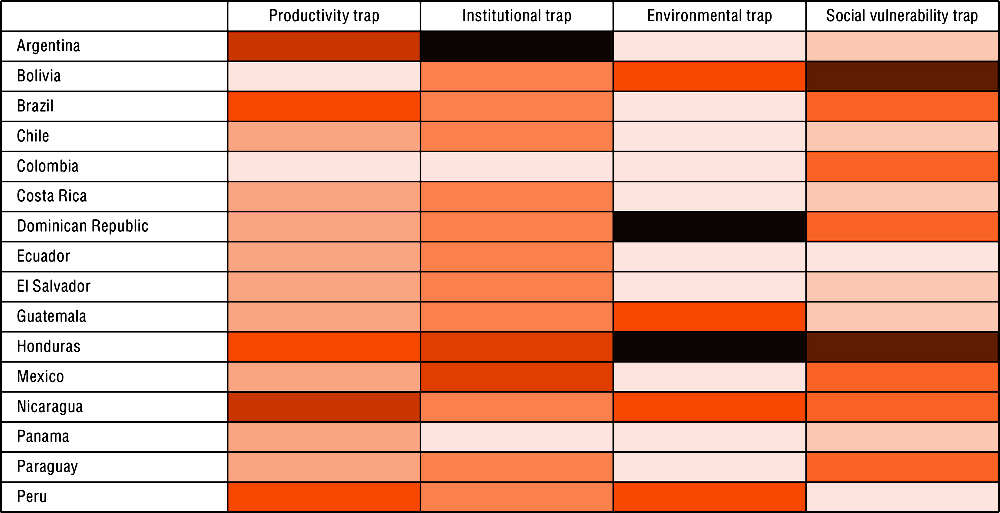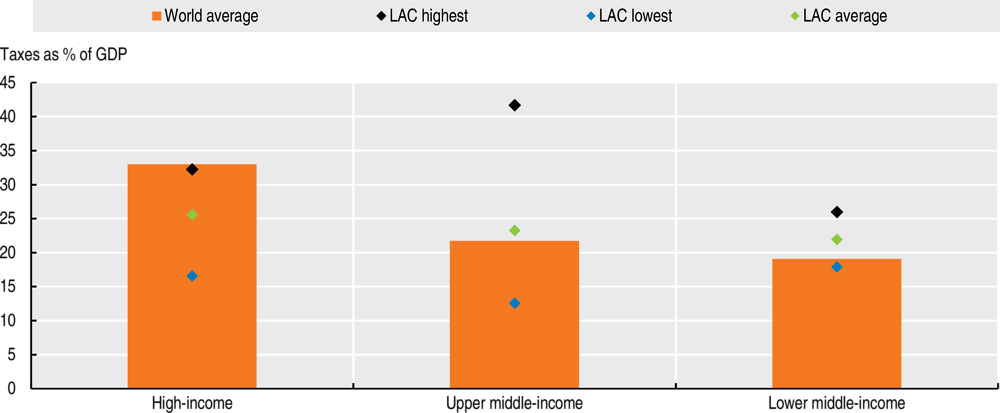The Latin American Economic Outlook 2019 (LEO 2019) presents a new approach to support Latin America and the Caribbean’s (LAC) transition to inclusive and sustainable development called “Development in Transition” (DiT). This represents an opportunity to advance towards the goals of the 2030 Agenda for Sustainable Development (Agenda 2030) by rethinking the concept of development, the strategies countries should pursue and the role of international co-operation in facilitating these efforts. In the face of significantly evolving domestic and global contexts, DiT calls for improving domestic capacities and adopting more innovative modalities of international co-operation for development. In so doing, it could support both national development objectives and international efforts to advance regional and global public goods.
This new approach is needed for various reasons. First, progress towards higher income levels in LAC is creating new and increasingly complex development challenges – the “new” development traps – which should be transformed into greater development opportunities. Second, LAC is reaching per capita levels of gross domestic product (GDP) where income loses relevance as a component of well-being. This demands a multi-dimensional approach to development. Third, the global context is increasingly complex. Various megatrends and the emergence of new actors in the global arena have rendered traditional policies outdated. They demand innovative policy strategies to enhance inclusive and sustainable development.
To respond to these evolving domestic and global contexts, the DiT approach stresses the need to achieve the following:
Improve domestic capacities: This will be crucial to address development traps and foster a multi-dimensional approach to sustainable development in LAC. LEO 2019 focuses on two key cross-cutting capacities that are fundamental to exploit untapped opportunities for development:
Improved policy making for development includes issues related to continue building technical capacity to design, implement and monitor strategic National Development Plans (NDPs). It also includes building capacity to spend better, and to create the political consensus and citizens’ support to overcome the complexities of the political economy of reforms in LAC.
Improved financing for development focuses on mobilising sustainable domestic financing for development, both public and private, to invest in structural policies and support the sustainable development agenda.
Strengthen international co-operation as a facilitator for LAC: International co-operation needs to be more innovative to adapt to a complex and multipolar global context. It needs to serve as a facilitator of countries’ efforts to respond to the needs of economies and societies in transition in several ways:
Allow for countries at all income levels to build and participate in policy partnerships, as equal partners, and address common concerns.
Place LAC national strategies front and centre, and strengthen countries’ domestic capacities. It could help LAC countries set policy priorities, implement and evaluate development plans, and increase alignment between domestic and international priorities. It could also help them play an active role in the global agenda.
Include an expanded toolbox of international co-operation modalities and instruments that brings in the expertise from a wide range of actors, and sectors, promoting a “whole of government” approach. This toolbox comprises instruments for greater technical co-operation, such as knowledge sharing, multilateral policy dialogues, capacity building, access to technology and co-operation on science, technology and innovation.
These recommendations present ways forward for LAC countries to overcome their development traps and transform them into broad opportunities. In this sense, they can support LAC countries to achieve a scenario of greater openness to the world economy, commitment to the global sustainable agenda (e.g. the Agenda 2030 and the Sustainable Development Goals [SDGs]), agreement on the reduction of climate change, reduction of poverty and a consolidation of the middle class.
Four development traps stand in the way of further inclusive and sustainable growth. Although countries are climbing the income ladder, they still face both old and new challenges, which are linked to the transition to higher income levels. These traps are the productivity trap, the social vulnerability trap, the institutional trap and the environmental trap.
Policy actions are needed to move from vicious circles to virtuous circles of development. Policy actions should address key structural challenges, including poor productivity, increasing vulnerability levels, persistent inequality rates and rising citizen discontent. Strengthening domestic capacities in close partnership with international co-operation is fundamental to face the region’s vulnerabilities under more complex international conditions. And this must be done while considering the relevance of preserving global public goods and the importance of co-ordinating domestic strategies with the broader sustainable development agenda. The path to sustainable and inclusive development must embrace development’s multidimensional process. It requires a new vision for international co-operation as a facilitator to make progress inclusive for all.

